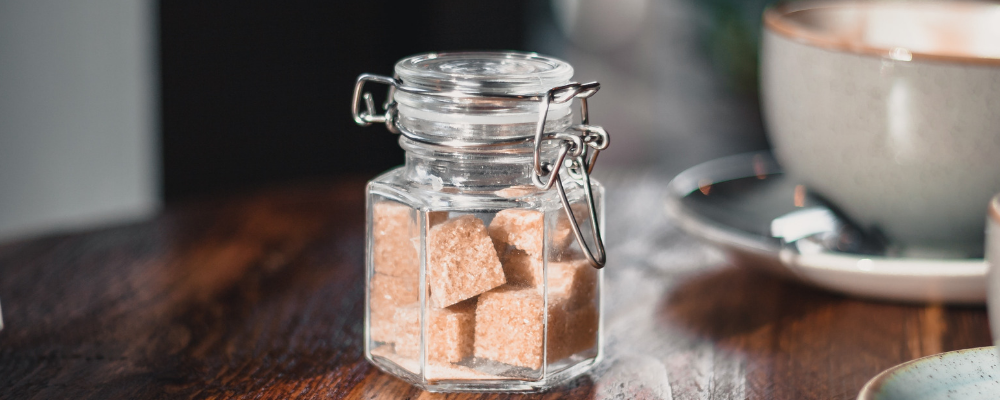
Sugar substitutes: What is the best sweetener for you?
Summer is coming and we all want our beach body! But in reality, more than looks, we should be worrying about our health, especially with overweight becoming a serious matter of public health over the years. In the last 50 years, the number of obese or overweight people has tripled to reach in 2016 over 1.9 billion according to the WHO. Regular physical activity and a healthy diet are the only way to improve our health, something that is even more important if you are suffering an illness or disease, like diabetes.
Experts agree that a good step towards a healthy life is the reduction of sugar consumption, which has overtaken fat as the usual culprit in obesity. Consumers need to be careful of the amount eaten, while the food industry needs to reduce its use or substitute it for healthier alternatives. But, is sugar that overused? And what other alternatives are there available?
Sugar...everywhere?
Indeed, you can find a lot of added sugars in processed foods and drinks. A single 330ml Cola soft-drink has around 35g or 7 teaspoons of sugar. Meanwhile, “healthy” solutions like energy bars can easily sneak up to 25g of sugar. To put it into perspective, the WHO recommends adults and children reduce their daily intake of free sugars to less than 10% of their total energy intake, stating also than a further reduction to below 5% or roughly 25 grams (6 teaspoons) per day would provide additional health benefits.
Even if you are the type of person that just likes to pick snacks without worrying about counting calories, you should be careful of the sugar amount you are consuming, since its not only the cause of weight gain but may also increase your risk of heart disease, acne, diabetes, cancer or even depression. To avoid counting sugar spoons when pouring coffee, a solution apart from avoiding sugar completely is the use of a sugar substitute.
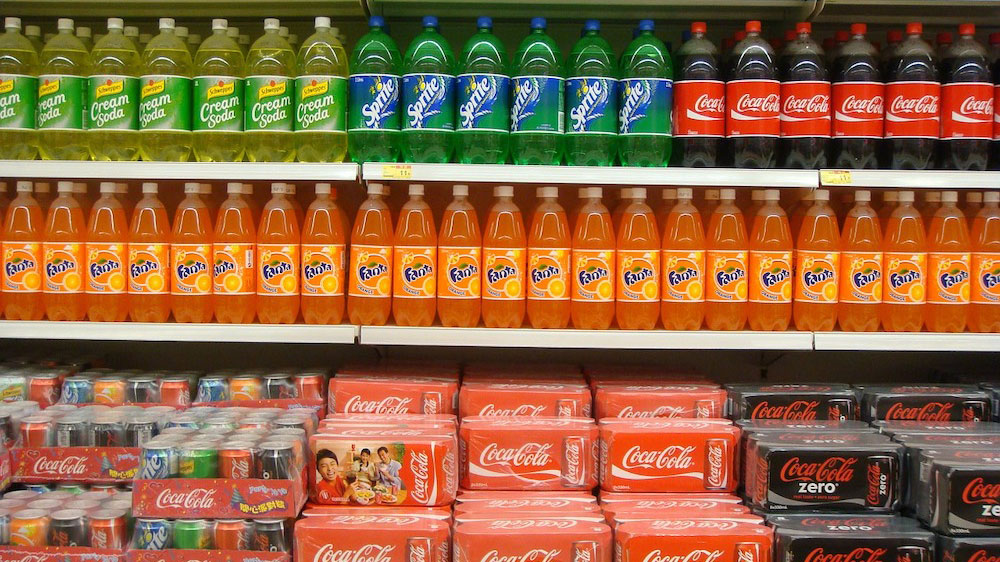
What are the alternatives to sugar?
A sugar substitute is a food additive that provides a sweet taste like that of sugar while containing significantly less food energy than sugar-based sweeteners, making it a zero-calorie or low-calorie sweetener. Broadly, we can divide them between artificial and natural sweeteners depending on its origins. Let’s see what those different sweeteners can offer us.
Artificial Sweeteners
Artificial sweeteners are obtained by chemical synthesis and basically consist of 5 different types: saccharin, acesulfame, aspartame, neotame, and sucralose, this last one being the most popular, accounting for almost 30% of the sweeteners used in food and beverages worldwide. The main issue with these non-natural products is that we don’t have a clear view yet on their side effects. Many studies are held in order to clarify the situation, and the results end many times in inconclusive results, some reporting negative effects, while other experts defending that they are safe sweeteners for your health. Another inconvenience is that regular consumption of artificial sweeteners can create a craving for more sweet products, having a stimulating effect on appetite.
Natural sweeteners
Contrary to artificial sweeteners we have natural sweeteners, derived from a natural source, avoiding a high chemical processing. We can divide them in with or without calories.
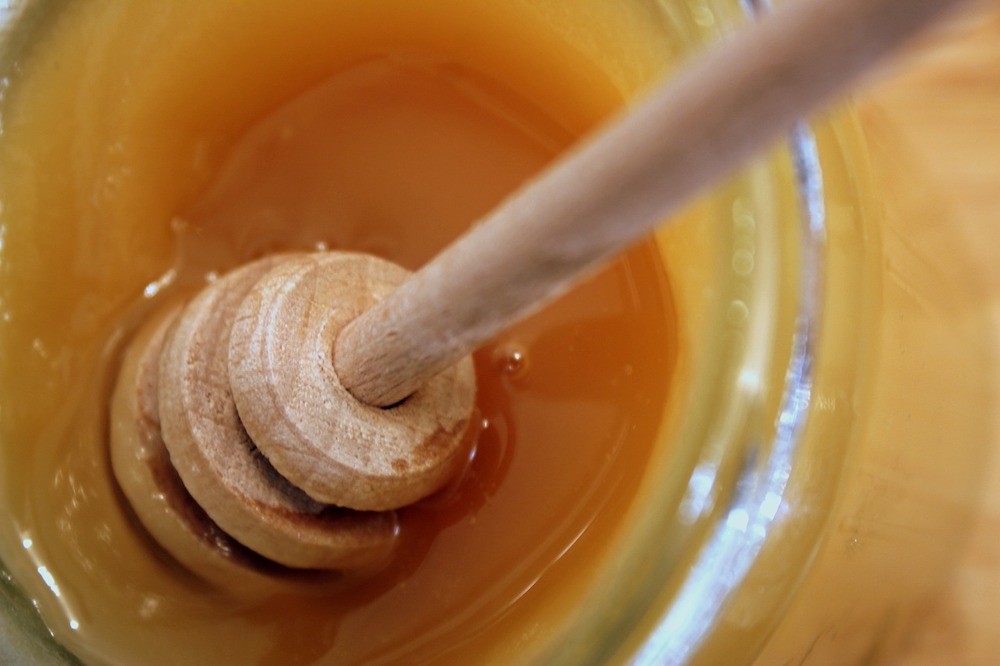
Sweeteners with calories:
- Instead of using sugar, why not use natural products that are sweet? Natural yogurt, fruit jams, honey, maple syrup… all these options can provide the necessary sweetness to your coffee and dishes. They normally carry vitamins, nutrients, and antioxidants that will make it better than just regular, plain sugar. They do still carry calories and carbohydrates, so just switching from sugar to these options may not fix anything if you don’t reduce the amount. If going this route, always buy organic, healthy options.
- Date Sugar, which is actually granulated dried dates, is many times used as a brown sugar alternative. Containing plenty of fiber, minerals, and antioxidants, is indeed a better alternative, but as a significant source of simple carbohydrates and calories, caution is advised. Another inconvenience is that it doesn’t melt or dissolve like sugar, limiting its use.
- Coconut Sugar, made from the sweet nectar of flower buds of the coconut palm, is a good source of potassium, iron, and vitamins. Providing the same amount of calories and carbohydrates as regular sugar, it may not be a good alternative for those looking to start a diet.
- Agave Nectar, extracted from the agave plant native to the southern US, Latin America, and South America, was traditionally believed to have healing properties, so it has been marketed as a natural sweetener (it does have a natural origin in the end). In reality, due to being an extremely processed process of creation, making it high in fructose and maybe a worse alternative than even consuming sugar.
- Other low-calorie sweeteners include Yacon Syrup, Xylitol, and Erythritol. All really low in calories, their main problems are aftertaste (Erythritol) and indigestion (Yacon Syrup and Xylitol) in some cases.
Sweeteners without calories:
For those looking for a natural alternative that has no calories, these options basically get reduced to two:
- Stevia, extracted from the leaves of a plant called Stevia Rebaudiana, was used by native South Americans and contains zero calories and zero carbohydrates. Hundreds of times sweeter than sugar, you can use it like regular sugar, and even bake with it. There is no evidence showing that it causes any harmful side effects, but some people do report that is difficult to digest and has a slight effect on lowering blood pressure. The may complain of Stevia is its strong metallic aftertaste, which does vary from brand to brand.
- Monk fruit, also called Luo Han Guo, finds its origins in Southeast Asia. The fruit's extract contains substances called mogrosides, which are intensely sweet. With zero calorie and zero carbohydrates, it also is an antioxidant, has no effect on blood sugar at all, and you can incorporate it into all your recipes without any problems. Its main drawback is that some people may find its taste unusual, and some manufacturers, to balance its sweetness, mix it with ingredients that change the sweetener's nutritional profile.
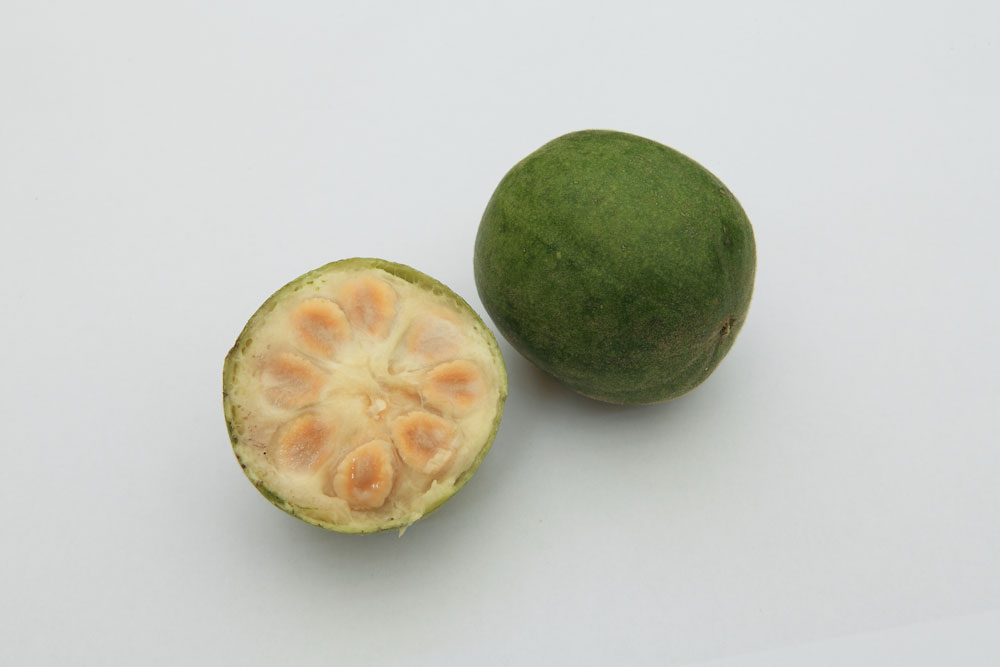
In the end, no matter what sweetener you choose, just like any food, the most important thing is moderation. And yes, you should be able to treat yourself with something sweet from time to time.
The Lakanto Solution
Saraya produces its own monk fruit sweetener named Lakanto which is the only zero-calorie, zero-glycemic sweetener that is just like sugar and leaves no aftertaste.
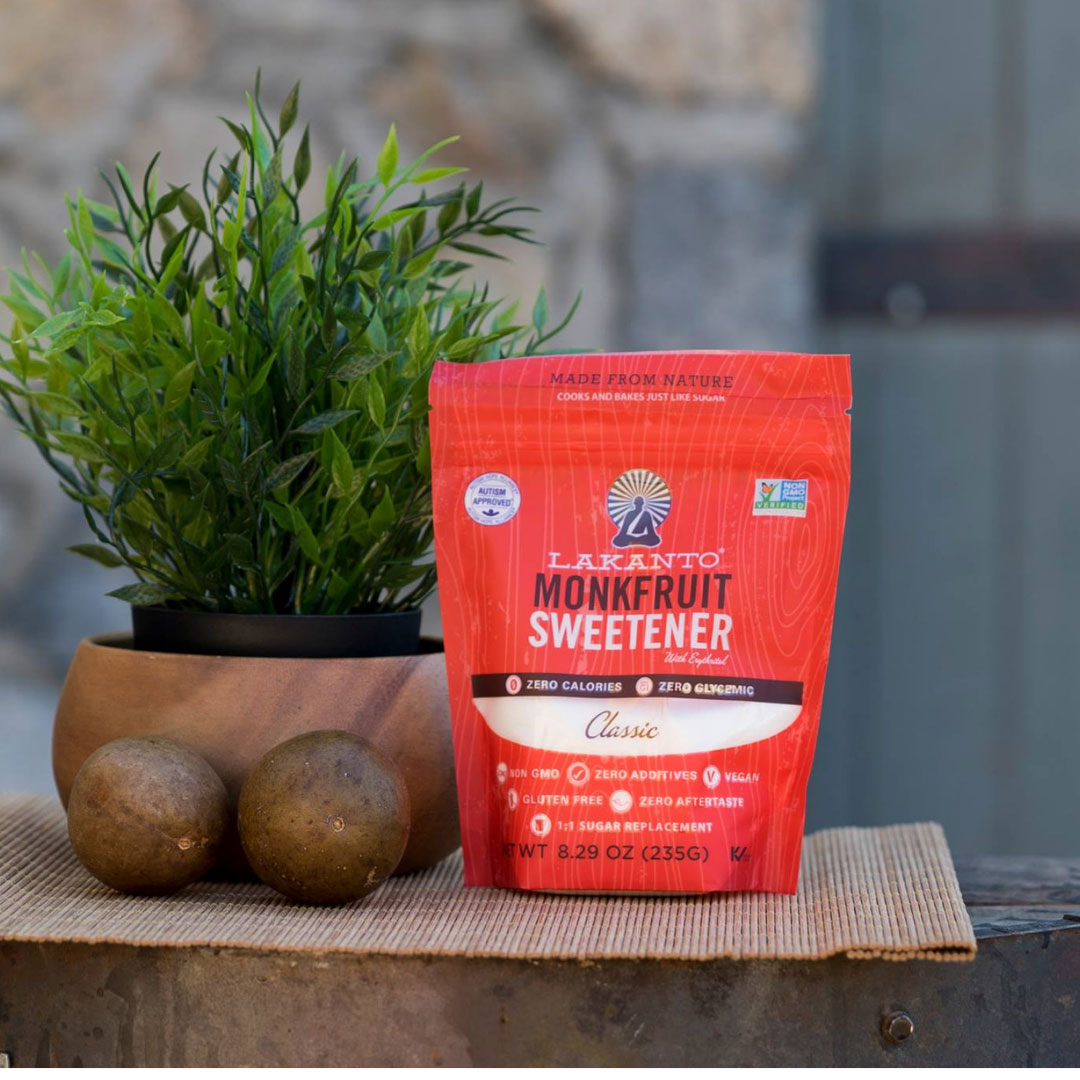
Made from Monk Fruit and Erythritol, we still grow and harvest the fruit in the same original pristine area where it is from, respecting the traditional and environmental methods of cultivation. We believe that Lakanto is the perfect replacement sugar for people suffering from diabetes or doing a low-carb diet.
So if you are vegan, doing a keto diet, or you are just searching for a gluten-free solution, we think we can help you.
And for those visiting Japan and still in doubt, we recently opened a Lakanto Cafe & Dining called Lakan-Ka in Tokyo, providing delicious no sugar added desserts and meals for everyone, showcasing the effectiveness of Lakanto as a natural sweetener.
Join the sweet responsibility.
- Kliknięć: 2784
